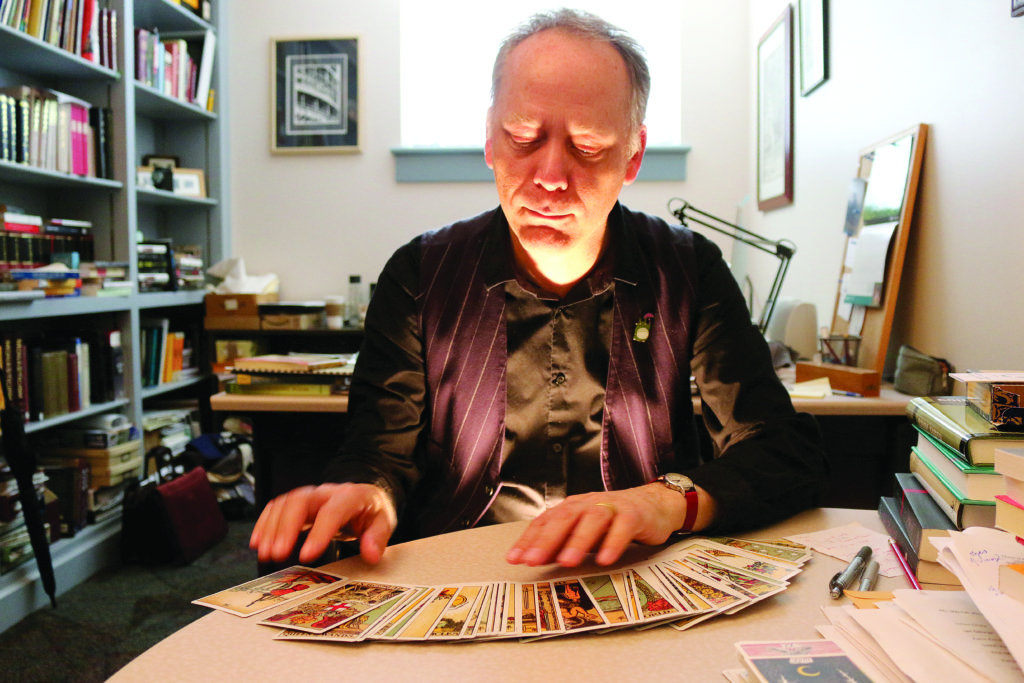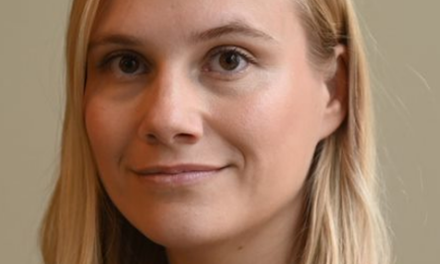
Ayushi Agarwal/Photo Editor
Is it worth enrolling in a course if the teacher is not on Rate My Professor? Does the catfish at the DUC-ling look a little suspicious? Do you know which internship to take this summer?
Next time an important life decision comes up, a student enrolled in Associate Professor of Religion Eric Reinders’ freshman seminar on “Religion, Fortune-telling and Fate” (REL 190) may be able to give you an answer — they might recommend palm reading, reading the “Yijing” or using a form of divination students invented.
Divinations is an umbrella term for practices used to gain insight into the future, often by invoking supernatural methods. Reinders’ course examines divination practices from around the world and draws inspiration from his international travels several years ago. While spending a year traveling abroad to reevaluate his life direction, Reinders said he discovered new perspectives on life through Chinese astrology in Taiwan.
“Some of [what I learned in Taiwan] was good advice or just basic knowledge,” Reinders said. “[But] divination [also] makes you think about [ideas] that you haven’t thought about before.”
The fates led Reinders, who specializes in the study of Chinese religion, back to Emory. In his first semester offering the seminar, the course examines international divination practices, from modern India to the ancient Mediterranean region. On a typical day, the class discusses the divination and theories from their readings, occasionally practicing the methods themselves. His students, who range from skeptics to zealous believers, soon learned that they had done divinations even before taking the class, Reinders said.
“They’ve looked at a horoscope in the newspaper, done various lucky charm activities, flipped coins — that kind of thing,” Reinders said. “[Divination is] a term that applies to a lot that we do.”
Felicity Lin (21C) said she enrolled in Reinders’ seminar to learn more about the Taiwanese divinations that her family practices such as gambling or her aunt’s tarot card readings.
“I realized, ‘Oh yeah, we do [some of these divinations] in our family, too,’” Lin said. “It’s very interesting to learn more about what’s going on in [my] own culture.”
As the semester progresses, students create their own divination practices using knowledge they have amassed throughout the semester.
Jimmy Zhang’s (21C) self-invented “Phytoprognosis” method attempts to predict health from the growth patterns of an aloe plant. When Zhang’s plant turned brown before spring break, he attributed the discoloration to midterms stress. The plant grew healthy again after spring break and mirrored Zhang’s own return to good health.
“I wish Emory had more classes like [Fortune-telling and Fate],” Zhang said. “It has a hands–on component, and divination turns out to be very introspective. I discovered things about myself I previously overlooked.”
Despite the promising growth of his plant, Zhang is cautious to wholeheartedly embrace his results.
“There is still a level of skepticism; every result I get from a divination is taken with a grain of salt,” Zhang said.
Reinders said he wants his students to understand the role that divination plays in their lives and believes that the principles behind divination can apply to matters beyond fortune telling.
“If you look at divination psychologically, it can be very useful,” Reinders said. “If I do a tarot reading and the tarot is presenting different images and ideas to you … you are filling in the gaps [and] making the connections.”
From tarot cards to horoscopes, Reinders believes self-projection plays a role in what lessons one takes away from the divination. Lin also said she believes divinations have psychological importance.
“It’s all about how you interpret [the divination] and how you see it,” she said.
The cultural role of divination stems from the psychological desire to find meaning in life, Reinders said. The course also focuses on psychoanalysis, gambling and prophecy.
“In general, our lives are not very rational,” Reinders said. “We are constantly trying to make our lives meaningful and divination is just a way to be a little more systematic about that.”
Reinders plans to offer “Fortune-telling and Fate” again in Spring 2019.



